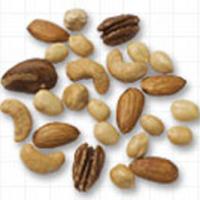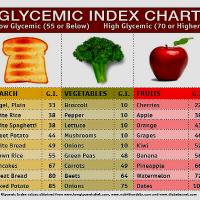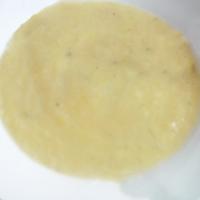A Good Diet Has You Eating More Often!
The basis of any diet plan is to eat less and exercise more. We are always urged to consume fewer foods that contain calories from simple carbohydrates (sugar and processed flour) and more protein (meat, eggs and cheese), whole grains, fresh fruits and vegetables. This is common sense to most people.
Less well appreciated is that a good diet gets you eating more food - in the form of eating more often.
Human genetics has developed over the millennia because of one important driving force - survival. Your brain feels threatened when you eat too little because your stomach sends up a message that it thinks the lack of food means you're starving (locusts have wiped out the crops, or a tsunami has laid waste your habitat for hundreds of miles!) Your subconscious does not know that it is you who is deliberately causing the reduced caloric intake; it just goes into panic mode.
Reacting to this message, the body begins to break down muscle to use as energy but saves its fat stores for the "final" effort to save itself from what it thinks is impending death.
This is bad for two reasons...
Losing muscle tissue requires your body to increase your energy intake to help keep your metabolism running at its normal pace. A higher metabolism burns more calories even at a state of rest. Fat, on the other hand, does not require energy to support it - it's truly "dead-weight".When you eat less, your body will store more intake as fat because it is following its primary objective. Survival is your body's most important concern and it will do whatever necessary to stay alive.What's the answer? How can you eat less without starving yourself and sending your body into this survivalist defense?
Eat smaller meals, but eat every two hours, not four, throughout the day.
And this good for two reasons...
By eating more often you won't get hungry as quicklyYour metabolism will stay raised because you'll be digesting food more often. Digesting food uses calories just like any other physical activityEating often will help you avoid those snacking binges.
You should eat five or six meals a day - just not what you have come to think of as a meal (a plate-full plus dessert). Instead, eat a small portion of protein together with some fresh fruits and veggies. This does not take much time to prepare; it just requires planning.
Useful examples include skinless chicken breast - a great protein - which you can buy in a value pack. If you cook the lot at once, you will then have handy, good-for-you options for future meals. And eggs: boil up ½ dozen eggs (whites are better alone but you don't have to eat the hard yellow middle) - or you could remove a few of the yellows and scramble the rest then refrigerate and use in small portions.
This prep work - for fruits and veggies too - can be done in an hour or so at the weekend, and then you are all set for the week.
Don't forget the water: at least 64oz of filtered water through the day (not all at once) to help rid your body of fat and toxins. It will also help to make you feel full.
Eating more and feeling full on a low-carb diet plan will help you feel better and lose weight.
Copyright (c) 2012 Vizzitopia
Related Articles
-
Diets Dont Work - 4 Ways To Lose Weight Naturally and Effectively
Any doctor worth their salt will tell you diets dont ... an
-
A Popular Low Carb Diet
Low-carb diets are mainly a high protein diet & lower in carbohydrate
-
Methods To Lose Weights By Following Best Diets
he best diets to lose weight would essentially consist of a controlle
-
Low Carb Diets -getting The Right Results For You
There are lots of diets to choose from and also the one which is app
-
Successful Dieting Involves Eating Fewer Calories
No matter what type of diet is chosen, the only really effi
-
Most Popular Low-Carb Diets
Low-carb diets limit the intake of certain carbohydrates. Researchers
- DON'T MISS
- The Best Low Carb Cheesecake Recipe
- Upside-down Breakfast Souffl?
- Cooking Wild Salmon
- Replacing white with low carb bread, whole wheat pasta and wild rice
- Diet Plans -exploring Your Alternatives
- Getting Long-term Comes From Low Carb Diets
- Complex Carbs For Rookies
- How Atkins Low Carb Diet Products Work
- Low Carb Diet Requirements & How They Work
- How to Create a Low Carb Diet




